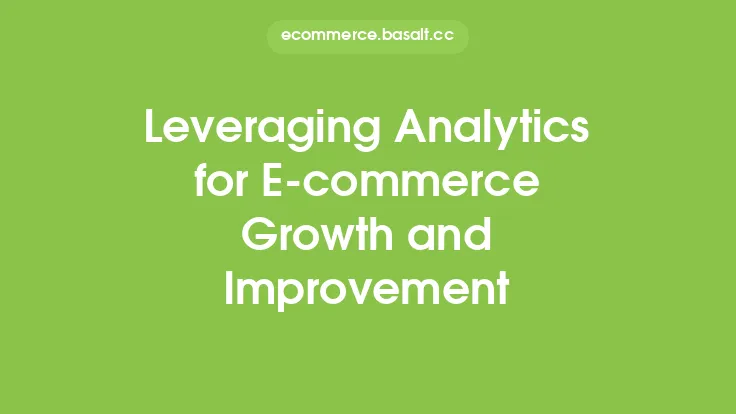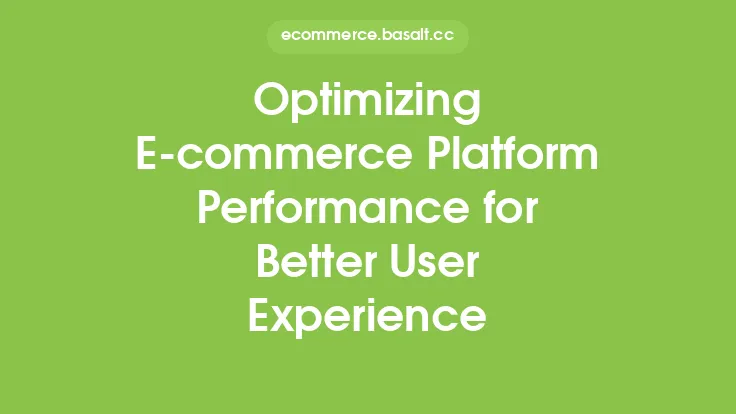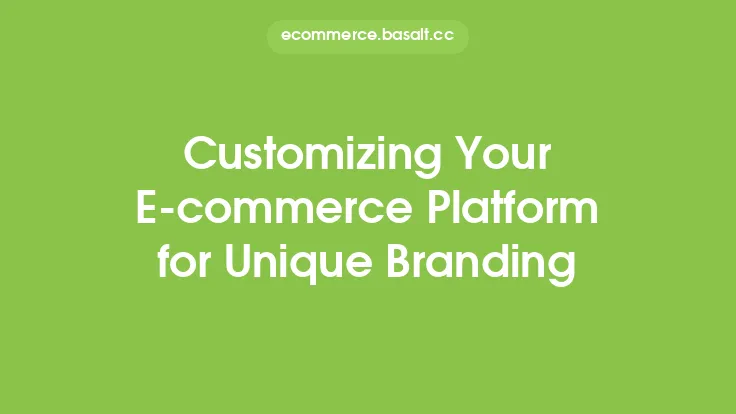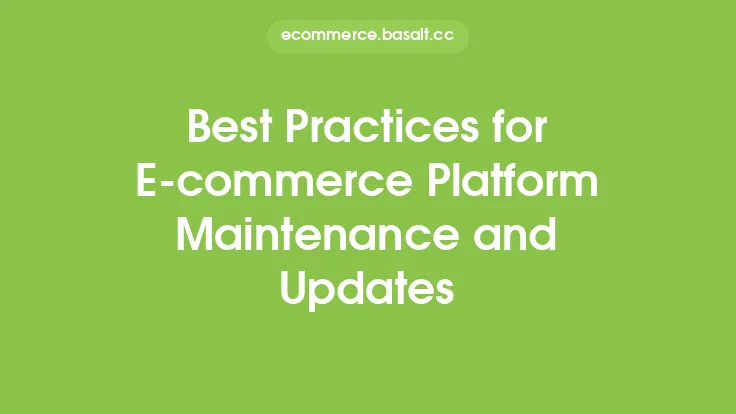E-commerce platforms have revolutionized the way businesses operate online, providing a comprehensive suite of tools to manage and grow an online store. However, as businesses evolve and expand, they often require additional functionality to meet their unique needs. This is where e-commerce platform extensions come into play, offering a wide range of features and capabilities that can enhance the overall functionality of an online store. In this article, we will explore the world of e-commerce platform extensions, discussing their benefits, types, and best practices for implementation.
Introduction to E-commerce Platform Extensions
E-commerce platform extensions are software components that can be integrated into an existing e-commerce platform to add new features, functionality, or services. These extensions can be developed by the platform provider, third-party developers, or even the business itself. They can range from simple plugins that add a specific feature, such as social media sharing or product reviews, to complex modules that provide advanced functionality, such as inventory management or shipping integration. By leveraging e-commerce platform extensions, businesses can tailor their online store to meet their specific needs, improving the overall user experience and driving sales.
Benefits of E-commerce Platform Extensions
The benefits of e-commerce platform extensions are numerous. Firstly, they allow businesses to add new features and functionality to their online store without requiring significant changes to the underlying platform. This can be particularly useful for small and medium-sized businesses that may not have the resources or expertise to develop custom solutions. Secondly, extensions can help businesses to stay competitive by providing access to the latest technologies and trends. For example, a business can use an extension to add artificial intelligence-powered product recommendations or to integrate with popular social media platforms. Finally, extensions can help businesses to improve their operational efficiency by automating tasks, streamlining processes, and providing real-time insights into customer behavior.
Types of E-commerce Platform Extensions
There are several types of e-commerce platform extensions available, each designed to meet specific business needs. Some common types of extensions include:
- Payment gateways: These extensions allow businesses to accept payments from customers through various payment methods, such as credit cards, PayPal, or bank transfers.
- Shipping integrations: These extensions enable businesses to integrate their online store with shipping carriers, such as UPS, FedEx, or DHL, to calculate shipping rates and print shipping labels.
- Marketing automation: These extensions provide businesses with the tools to automate marketing campaigns, such as email marketing, social media marketing, and loyalty programs.
- Inventory management: These extensions help businesses to manage their inventory levels, track stock levels, and automate reordering processes.
- Analytics and reporting: These extensions provide businesses with real-time insights into customer behavior, sales trends, and marketing effectiveness.
Best Practices for Implementing E-commerce Platform Extensions
Implementing e-commerce platform extensions requires careful planning and execution to ensure seamless integration and optimal performance. Here are some best practices to follow:
- Research and evaluate extensions: Before selecting an extension, research its features, compatibility, and user reviews to ensure it meets your business needs.
- Test extensions thoroughly: Test extensions in a sandbox environment before deploying them to your live online store to ensure they work as expected.
- Follow platform guidelines: Follow the platform provider's guidelines for installing and configuring extensions to avoid compatibility issues.
- Monitor performance: Monitor your online store's performance after installing an extension to ensure it does not impact page load times or user experience.
- Keep extensions up-to-date: Regularly update extensions to ensure you have the latest features and security patches.
Common Challenges and Solutions
While e-commerce platform extensions can provide significant benefits, they can also pose challenges. Some common challenges include:
- Compatibility issues: Extensions may not be compatible with the latest version of the e-commerce platform or other extensions.
- Performance issues: Extensions can impact page load times and user experience if not optimized properly.
- Security risks: Extensions can introduce security risks if not developed or configured properly.
To overcome these challenges, businesses can work with experienced developers, follow platform guidelines, and regularly monitor their online store's performance.
Future of E-commerce Platform Extensions
The future of e-commerce platform extensions is exciting, with new technologies and trends emerging all the time. Some of the key trends to watch include:
- Artificial intelligence and machine learning: Extensions that leverage AI and ML can provide businesses with powerful tools to personalize customer experiences, predict sales trends, and automate marketing campaigns.
- Internet of Things (IoT): Extensions that integrate with IoT devices can enable businesses to provide seamless omnichannel experiences, track inventory levels, and automate logistics.
- Augmented reality and virtual reality: Extensions that leverage AR and VR can provide businesses with new ways to engage customers, showcase products, and create immersive brand experiences.
Conclusion
E-commerce platform extensions offer businesses a powerful way to enhance the functionality of their online store, improve the user experience, and drive sales. By understanding the benefits, types, and best practices for implementing extensions, businesses can tailor their online store to meet their unique needs and stay competitive in a rapidly evolving market. As the e-commerce landscape continues to evolve, we can expect to see new and innovative extensions emerge, providing businesses with even more opportunities to grow and succeed.





